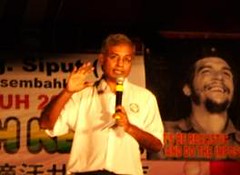The Vietnam Update will be held at University House, Australian National
University on 6-7 November 2008. The 2008 Vietnam Update addresses the
topic of labour in Vietnam.
Vietnam is one of the world's fastest growing economies and has undergone
a remarkable transformation over the last two decades from a poor, mostly
agricultural country to a new centre of global industrial production.
However, for three years in a row, factories throughout the country have
been hit by waves of strikes. Complaints about low wages, harsh conditions
and the high cost of living have come to the fore in labour disputes.
Industrial unrest has increased in 2008, a year of soaring inflation and
slowing growth. Below the surface, rarely manifested in the strikes, are
diverse concerns about inadequate social infrastructure for migrant
workers, the quality of the workforce, the representation of worker's
interests, the unregulated informal sector, and the social and cultural
costs of Vietnam's rapid metamorphosis into a globalised industrial
society.
The 2008 Vietnam Update takes up the timely issue of labour in Vietnam. It
will explore the theme of labour broadly, including Vietnam's position in
regional labour markets; everyday working conditions and experiences; the


 The
by-election results in Permatang Pauh, a semi-rural constituency in the
northern state of Penang, is yet another marker of the massive change
that is taking place in Malaysian politics. Usually by-elections are
won handsomely by the Barisan National (BN) government because the BN
will approve millions of ringgit in development projects, deploy all
its main leaders in the campaign and use the subservient media to the
fullest. This was attempted in Permatang Pauh this time around.
The
by-election results in Permatang Pauh, a semi-rural constituency in the
northern state of Penang, is yet another marker of the massive change
that is taking place in Malaysian politics. Usually by-elections are
won handsomely by the Barisan National (BN) government because the BN
will approve millions of ringgit in development projects, deploy all
its main leaders in the campaign and use the subservient media to the
fullest. This was attempted in Permatang Pauh this time around.